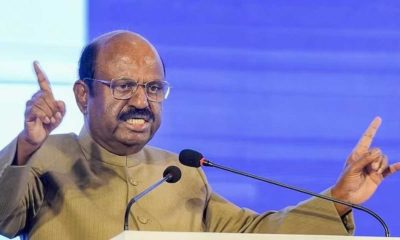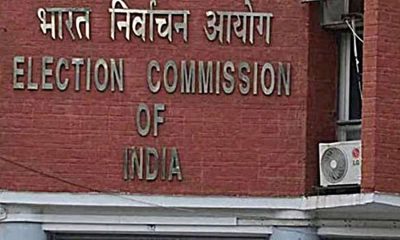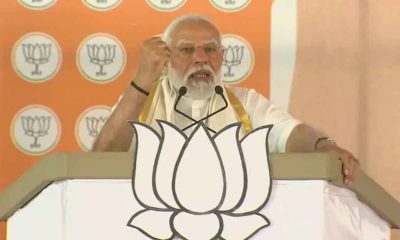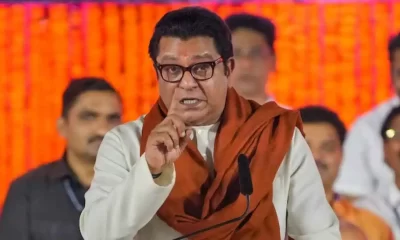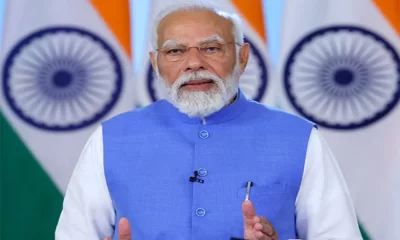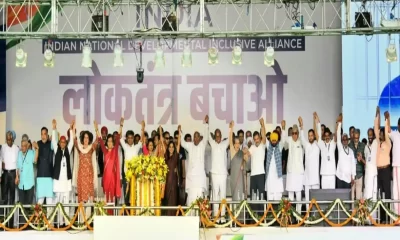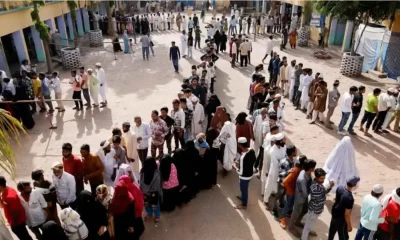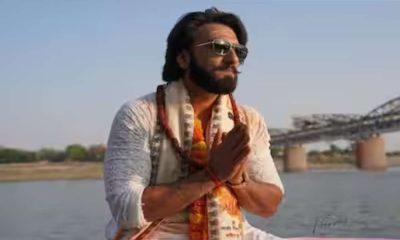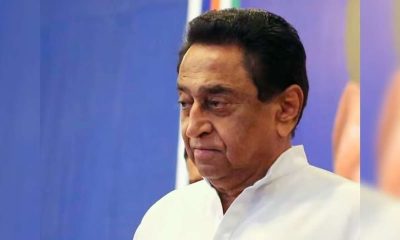India News
EC suggests 5 amendments to Constitution for simultaneous polls
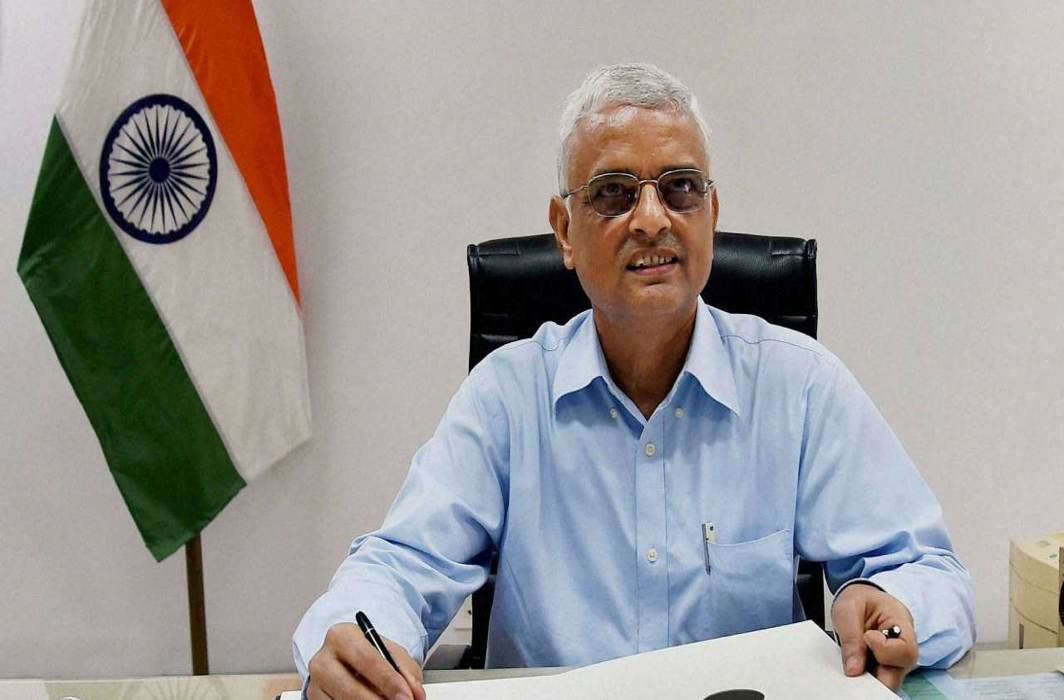
Chief Election Commissioner OP Rawat, Photo Credit: Agencies
Election Commission backs proposal for simultaneous Lok Sabha and Assembly polls but says 5 Articles under the Constitution will have to be amended first
Close on the heels of Prime Minister Narendra Modi’s concerted campaign for simultaneous polls to the Lok Sabha and state assemblies, the Election Commission has written to the Union Law Ministry stating that while it backed the idea, at least five Articles under the Constitution will have to first be amended to make this major reform possible.
According to a report in the Times of India, the Election Commission has sent a detailed note to the Union Law Ministry on the legislative requirements that need to be met before the Modi government can actually go ahead with the idea of holding simultaneous elections. The details from the Election Commission were sought in response to a private member’s bill in Rajya Sabha.
The required amendments to the Constitution that the EC has pointed out pertain to five Articles which largely govern the duration and dissolution of the Lok Sabha and state assemblies.
An internal note of prepared on the issue by the law ministry after factoring in the suggestions of the Election Commission was reportedly accessed by the TOI. The TOI report says: “…EC said terms of state legislatures could be extended, or curtailed, to coincide with LS polls. Article 83, dealing with duration of Houses of Parliament may need amendment. Other Articles that may need amendment include Article 85, regarding dissolution of the Lok Sabha by the President; and Article 172, relating to duration of state legislatures, Article 174 relating to dissolution of state assemblies; and Article 356”.
Here’s what the Articles pointed out by the EC for relevant amendments state:
Article 83
“The House of the People, unless sooner dissolved, shall continue for five years from the date appointed for its first meeting and no longer and the expiration of the said period of five years shall operate as a dissolution of the House: Provided that the said period may, while a Proclamation of Emergency is in operation, be extended by Parliament by law for a period not exceeding one year as a time and not extending in any case beyond a period of six months after s the Proclamation has ceased to operate.”
(Relevant part regarding the Lok Sabha; the Article also talks about the Rajya Sabha but the amendment need not be made to the part concerning the Upper House as its term is not affected by the dissolution of the Lok Sabha or state assembly)
Article 85
Sessions of Parliament, prorogation and dissolution
(1) The President shall form time to time summon each House of Parliament to meet at such time and place as he thinks fit, but six months shall not intervene between its last sitting in one session and the date appointed for its first sitting in the next session
(2) The President may from time to time
(a) prorogue the Houses or either House;
(b) dissolve the House of the People
Article 172
Duration of State Legislatures
“(1) Every Legislative Assembly of every State, unless sooner dissolved, shall continue for five years from the date appointed for its first meeting and no longer and the expiration of the said period of five years shall operate as a dissolution of the Assembly: Provided that the said period may, while a Proclamation of Emergency is in operation, be extended by Parliament by law for a period not exceeding one year at a time and not extending in any case beyond a period of six months after the Proclamation has ceased to operate.”
Article 174
Sessions of the State Legislature, prorogation and dissolution
“(1) The Governor shall from time to time summon the House or each House of the Legislature of the State to meet at such time and place as he thinks fit, but six months shall not intervene between its last sitting in one session and the date appointed for its first sitting in the next session
(2) The Governor may from time to time
(a) Prorogue the House or either House;
(b) dissolve the Legislative Assembly.”
Article 356 – Outlines rules for declaration of President’s Rule in States
The TOI report also mentions that, despite the push for simultaneous polls by Prime Minister Narendra Modi and more recently also by President Ram Nath Kovind, the Election Commission has advised caution against implementing this ambitious plan without extensive discussions with all stakeholders. The report says that the Election Commission has told the Law Ministry: “Having regard to the federal structure of our system of governance, it is imperative that consensus of all state governments is obtained” on the issue of holding simultaneous polls to the Lok Sabha and state assemblies.
The poll panel has further noted: “In order to avoid premature dissolution, it may be provided that any ‘no-confidence motion’ moved against the government in office should also necessarily include a further ‘confidence motion’ in favour of a government to be headed by a named individual as the future PM and voting should take place for two motions together.”
It may be recalled that before his elevation as the Chief Election Commissioner, OP Rawat had indicated that the poll panel was in favour of the Prime Minister’s idea of conducting simultaneous elections for the Lok Sabha and state assemblies.
2024 Lok Sabha Elections
Lok Sabha Elections: Voter turnout 62.02% in Tamil Nadu till 5pm
The voter turnout in Tamil Nadu stands at 62.02%, while Uttar Pradesh records a turnout of 57.5%. Meanwhile, in West Bengal, voter participation surges to 77.5% as of 5 pm.
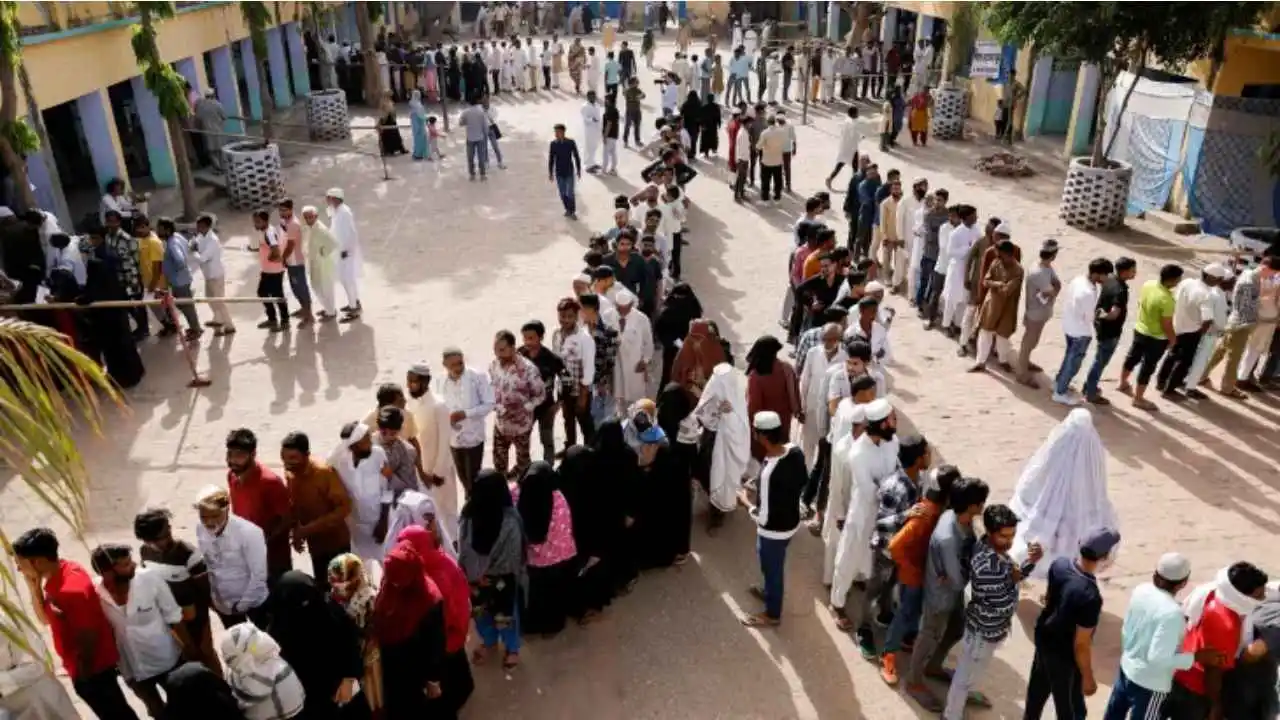
The Lok Sabha elections 2024 began today, marking the onset of the world’s largest electoral event. Voting ended in all 39 Lok Sabha constituencies in Tamil Nadu with a total voter turnout of 62.02%. State BJP chief and Coimbatore Lok Sabha constituency candidate K Annamalai said, they were getting complaints from a large number of voters that their names were missing from the voters’ list.
This incident happened in many places. Annamalai said they are demanding re-poll in places where the names of a large number of voters were missing.He said they had a doubt that there was some political interference because the names of a large number of BJP caders were missing from the voters list.
The voters in South Chennai showed lukewarm interest to participate in the election process and had a total voter turnout of 57.04% till 5pm. Although the overall percentage is poor, some areas like Thiruvanmiyur witnessed brisk polling from 7am onwards. Elderly, middle aged and young voters turned up and it was a family outing for many as they cast their vote.
Corporation volunteers assisted senior citizens with wheelchairs and guided them to their respective polling booths. The hot weather also had an impact on the polling as it reduced the voter turnout as many booths in the corporation school in MGR Nagar were seen deserted around noon. Senior citizens showed courage as they reached the polling booths in private vehicles to exercise their franchise.
Most of the polling booths had shamianas for voters so that they could wait in a queue. Some people even found refuge in the nearby buildings to save themselves from the scorching heat. The polling officials gave instructions to the voters to keep their phones switched off while they exercised their franchise. The security personnel at the polling booth also regulated traffic outside the polling booth in MGR Nagar.
2024 Lok Sabha Elections
Deserted by key supporters, the Kamal Nath story looks set to wind to an end in Chhindwara
Nath’s closest allies in his near 50-year reign—Deepak Saxena and Kamlesh Shah—have deserted him. His local team of corporators has also decided to jump ship leaving a gaping hole in Nath’s campaign trail.
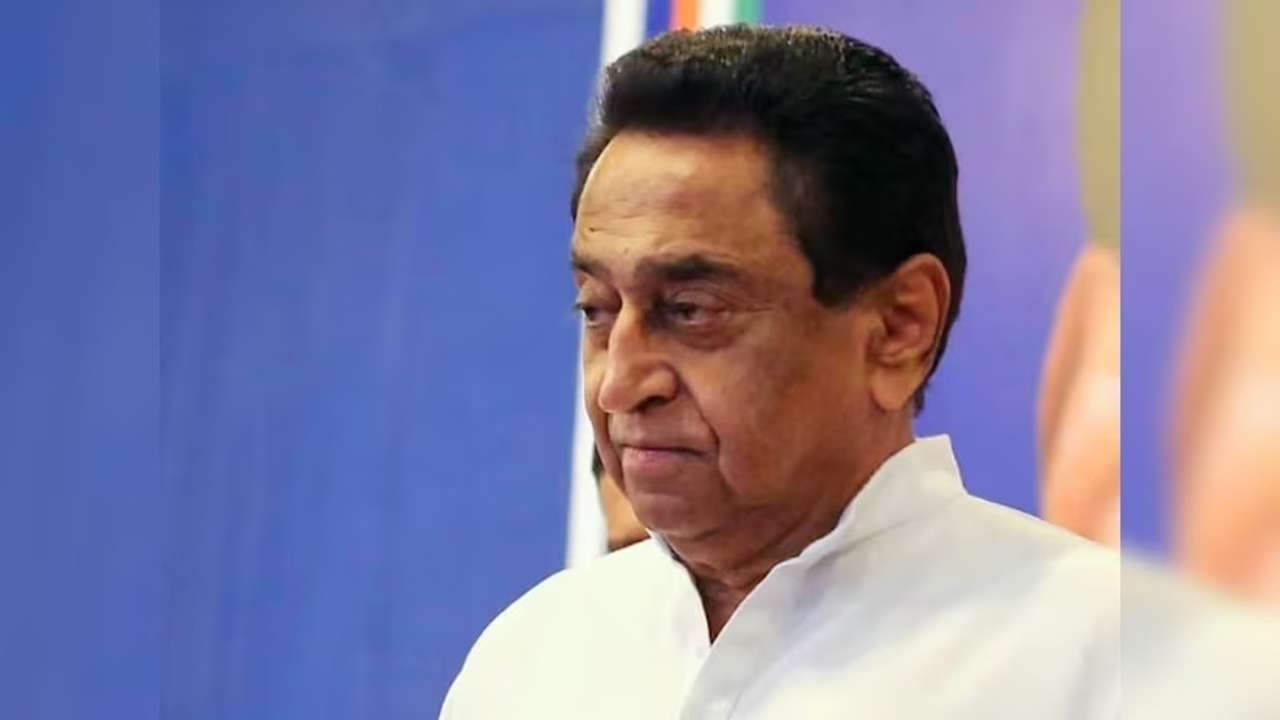
By Neeraj Mishra
The Congress has lost Chhindwara only once since Independence when the wily Sunderlal Patwa was sent there by Atal Bihari Vajpayee to test Kamal Nath’s hold on the constituency. Patwa won the 1997 by-election by a slim margin in the backdrop of Nath having forced his wife to first contest and later vacate the seat for him. Nath, however, returned to his winning ways the very next year and has won the seat nine times.
It seems possible that Chhindwara, the lone surviving Congress seat, will be lost again this time and may be forever. A day ahead of polling, the town was drowned in saffron. Not so much the effect of vigorous campaigning by Vivek Sahu of the BJP but the Ram Navami festival which brought out saffron flags on every rooftop. The effect is likely to last since the polling is today. At 77, Nath is unlikely to contest another election here and his son Nakul seems like a pale shadow of his father unable to even make a forceful speech. The days of running Chhindwara from Shikarpur kothi are gone.
Nath’s closest allies in his near 50-year reign—Deepak Saxena and Kamlesh Shah—have deserted him. His local team of corporators has also decided to jump ship leaving a gaping hole in Nath’s campaign trail. Nakul had won by a margin of 37,000 votes in 2019 and the biggest lead had come from Kamlesh’s Amarwada Assembly segment. With Saxena in control of Chhindwara and forced to show his strength in his new party, it is highly likely that Nakul will not be depending on these segments. Instead, the Congress campaign was focused on Pandhurna, Parasia and Chaurai.
Amit Shah was in the region a couple of days ago and warned all BJP workers—old and new—against lethargy. His message was clear, the BJP wants all 29 seats this time. Cabinet Minister Kailash Vijayvargiya is camped here and using all his political acumen for the desired results. One such tactic was to raid the Shikarpur Kothi of Kamal Nath for his assistant Miglani who handles almost everything for him. With Miglani temporarily neutralised, BJP is best placed to repeat its win in Chhindwara in 1997.
2024 Lok Sabha Elections
Lok Sabha Elections 2024: Nearly 40% voter turnout till 1pm
Chennai recorded an average voter turnout of 34% as of 1 pm on Friday. According data released by the Election Commission of India, Chennai (North) recorded 35%, Chennai (Central) recorded 32.3% and Chennai (South) recorded 34%.
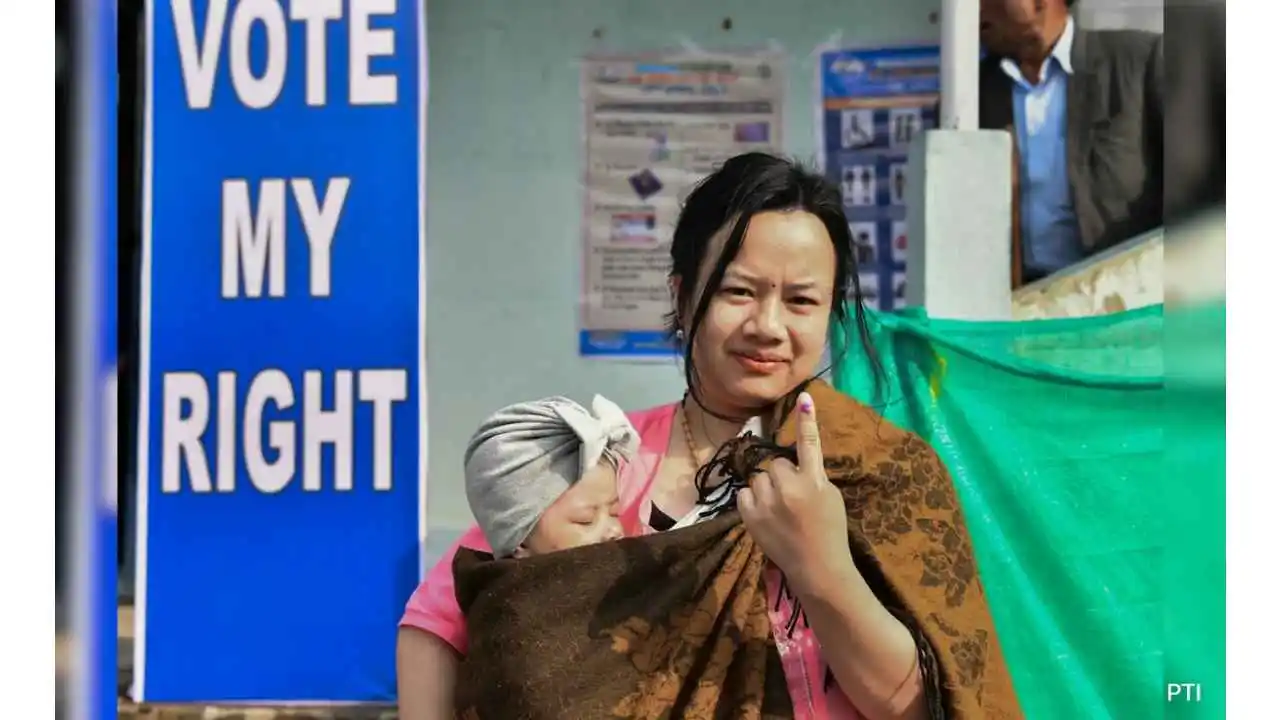
The first phase of voting for the 18th Lok Sabha elections started taking place in 21 states and Union territories on Friday. Nearly 40% voter turnout was recorded till 1pm across the states. Seats in Assam, Arunachal Pradesh, Chhattisgarh, Bihar, Maharashtra, Madhya Pradesh, Manipur, Mizoram, Meghalaya, Rajasthan, Nagaland, Tamil Nadu, Sikkim, Uttar Pradesh, Tripura, West Bengal, Uttarakhand, Jammu and Kashmir, Andaman and Nicobar Islands, Lakshadweep and Puducherry go to elections on Friday.
There has been a substantial increase in the voter turnout charts across the Northeast states, with Tripura leading at 53.04% until 1 pm, as per the data released by the Election Commission of India. Other northeast states like Manipur (46.92%) and Meghalaya (48.91%) are also witnessing high voter turnout. After Tripura, West Bengal is experiencing a high voter turnout of 50.96%.
Chennai recorded an average voter turnout of 34% as of 1 pm on Friday. According data released by the Election Commission of India, Chennai (North) recorded 35%, Chennai (Central) recorded 32.3% and Chennai (South) recorded 34%.
Over 33% voter turnout was recorded in the first 6 hours of voting on Friday in 12 parliamentary constituencies of Rajasthan. According to the Election Commission, voting started at 7 am amid tight security arrangements and 33.73 % voting took place till 1 pm. The highest voter turnout of 40.72 % was recorded in the Ganganagar Lok Sabha seat while Karauli-Dholpur saw the lowest turnout of 28.32 %. Jaipur recorded a poll percentage of 39.35 %.
Over 37 % voter turnout was recorded till 1 pm in the Lok Sabha election being held for five parliamentary constituencies in Uttarakhand on Friday. Elections began at 7 am and the five constituencies recorded an overall poll percentage of 37.33 % up to 1 pm. The Nainital-Udham Singh Nagar seat recorded the highest turnout of 40.46 %, followed by Haridwar with 39.41%, Pauri Garhwal with 36.60 %, Tehri Garhwal with 35.29 % and Almora with 32.29 %.
-
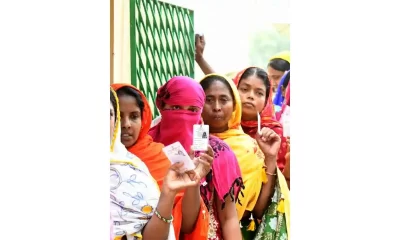
 2024 Lok Sabha Elections13 hours ago
2024 Lok Sabha Elections13 hours agoPrime Minister Narendra Modi urges citizens to vote in record numbers as voting for first phase of Lok Sabha elections begins on 102 seats across India
-
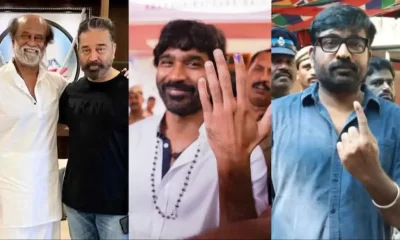
 2024 Lok Sabha Elections11 hours ago
2024 Lok Sabha Elections11 hours agoKamal Haasan, Rajinikanth, Vijay Sethupathi, Dhanush vote in Chennai
-
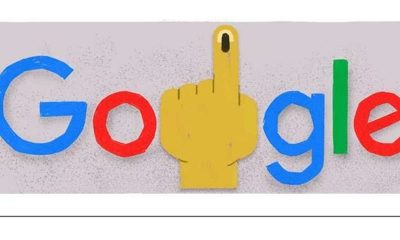
 2024 Lok Sabha Elections12 hours ago
2024 Lok Sabha Elections12 hours agoLok Sabha elections 2024: Google Doodle marks the start of polls with index finger voting symbol
-
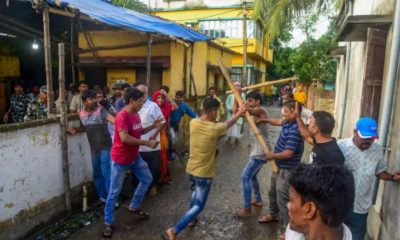
 2024 Lok Sabha Elections11 hours ago
2024 Lok Sabha Elections11 hours agoLok Sabha elections 2024: TMC, BJP workers clash in West Bengal’s Cooh Behar ahead of voting
-
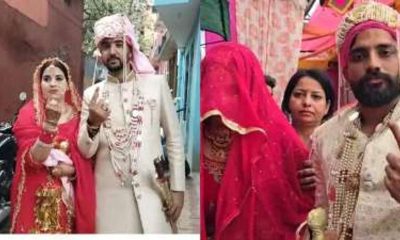
 2024 Lok Sabha Elections10 hours ago
2024 Lok Sabha Elections10 hours agoLok Sabha elections 2024: Newly married couple cast vote in Jammu and Kashmir’s Udhampur, video goes viral
-

 Entertainment8 hours ago
Entertainment8 hours agoDo Aur Do Pyaar social media review: Social media users say Vidya Balan, Pratik Gandhi deliver standout performances in this adorable film
-
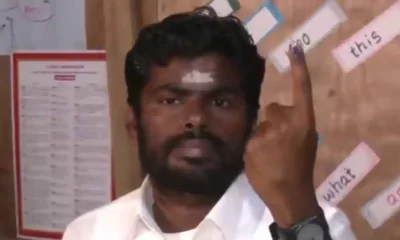
 2024 Lok Sabha Elections10 hours ago
2024 Lok Sabha Elections10 hours agoTamil Nadu BJP chief K Annamalai says party will sweep Karnataka and emerge victorious in Telangana, accuses DMK, AIADMK of influencing voters in Coimbatore
-
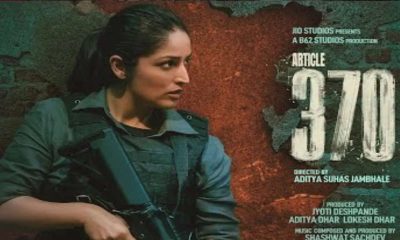
 Entertainment9 hours ago
Entertainment9 hours agoYami Gautam starrer Article 370 releases on Netflix today

